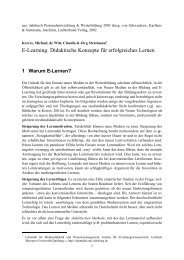1DVaPDK
1DVaPDK
1DVaPDK
Create successful ePaper yourself
Turn your PDF publications into a flip-book with our unique Google optimized e-Paper software.
# 11Learn to Sound More NativeAt C2, you are as good as a native speaker in how you can work and interact in the language, but you may still havean accent and make the odd mistake. I have been mistaken for a native speaker of my L2 several times (in Spanish,French and Portuguese – including when I was still at the B2/fluent level), and I can say that it’s a lot less related toyour language level, and more related to two other factors.First, your accent/intonationAccent is obvious; if you can’t roll your R in Spanish you will be recognized as a foreigner instantly.Your tongue muscles are not set in their ways forever, and you can learn the very fewnew sounds that your L2 requiresthat you learn. Time with a native, a good Youtube video explaining the sounds, and practice for a few hoursmay be all that you need!What is much more important, but often overlooked, is intonation—the pitch, rise, fall, and stress of your words.When I was writing my book, I interviewed fellow polyglot Lucawho is very effective in adapting a convincing accentin his target languages. For this, intonation is pivotal.Luca trains himself from the very start to mimic the musicality and rhythm of a language’s natives by visualizingthe sentences. For instance, if you really listen to it, the word “France” sounds different in “I want to go to France”(downward intonation) and “France is a beautiful country (intonation raising upwards). When you repeat sentencesin your L2, you have to mimic the musicality of them.My own French teacher pointed out a mistake I was making along these same lines. I was trying to raise my intonationbefore pauses, which is a feature of French that occurs much more frequently than in English, but I wasoverdoing it and applying it to the ends of sentences as well. This made my sentences sound incomplete, and whenmy teacher trained me to stop doing this, I was told that I sounded way more French.You can make these changes by focusing on the sounds of a language rather than just on the words.Truly listen to and and mimic audio from natives, have them correct your biggest mistakes and drill the mistakes outof you. I had an accent trainer show me how this worked, and I found out some fascinating differences betweenmy own Irish accent and American accents in the process! To see for yourself how the process works, check outthesecond half of this post with Soundcloud samples.Second, walk like an EgyptianThe second factor that influences whether or not you could be confused for a native speaker, involves working onyour social and cultural integration. This is often overlooked, but has made a world of difference to me, even in myearly stages of speaking several languages.




